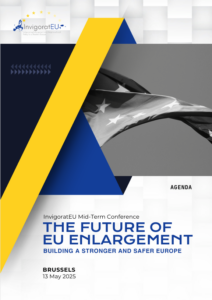Headquarters: Svetog Nauma 7, 11000
Office address: Đorđa Vajferta 13, 11000
Phone:: +381 11 4529 323

The Eighth meeting of the WeBER National Working Group for monitoring Public Administration Reform in Serbia was held in Belgrade on April 12, 2022. The meeting was organised with financial support of the Royal Norwegian Embassy and German Marshall Fund through the Balkan Trust for Democracy within the Western Balkan Civil Society Empowerment for a Reformed Public Administration (WeBER2.0) project. Milena Lazarevic, Project Team Leader and Programme Director of the European Policy Centre, opened the meeting and emphasized on the importance for a greater civil society engagement in monitoring PAR at the national, regional and local levels. She pointed out that within WeBER2.0, there are also 31 projects being implemented on a lower level that are dealing with important local PAR issues.
The first part of the meeting was dedicated to the presentation of findings on some of the most urgent issues – red flag issues – which were identified within the second cycle of the National PAR Monitor in Serbia for 2019/2020. Milos Djindic, Program Manager and Senior Researcher at the European Policy Centre, presented a policy brief The impact of policy on public administration in Serbia: whether and to whom it is still important. He pointed out that the findings showcase the politisation of the civil service system in Serbia, while persons in acting positions in public administration are almost a rule. In order to achieve ambitious reform goals, there is a need for a professional public administration, ie. there is a need for professional civil servants who are elected to these positions in a transparent competition procedure.
Milica Skoric, Junior Researcher at the European Policy Centre, presented a policy brief Public Consultation and Policy Making in Serbia. She noted that public consultations are being conducted only in order to fulfill the legal demands, but without any substantial discussion and without a real influence on the creation of public policies in Serbia. Moreover, findings show that early consultations did not come to life as a practice in Serbia, while the reports on the conducted public consultations are uneven and non-standardized.
The second part of the meeting was dedicated to the preparatory activities for the participation of the WeBER National Working Group in the consultations on the Draft Report on the Implementation of the PAR Strategy. In cooperation with the representatives of the Ministry of Public Administration and Local Self-Government, it was agreed that the WeBER National Working Group should participates as an interested party in the inter-ministerial working group dealing with the Draft Report.